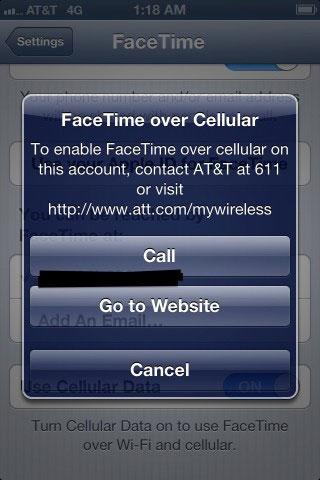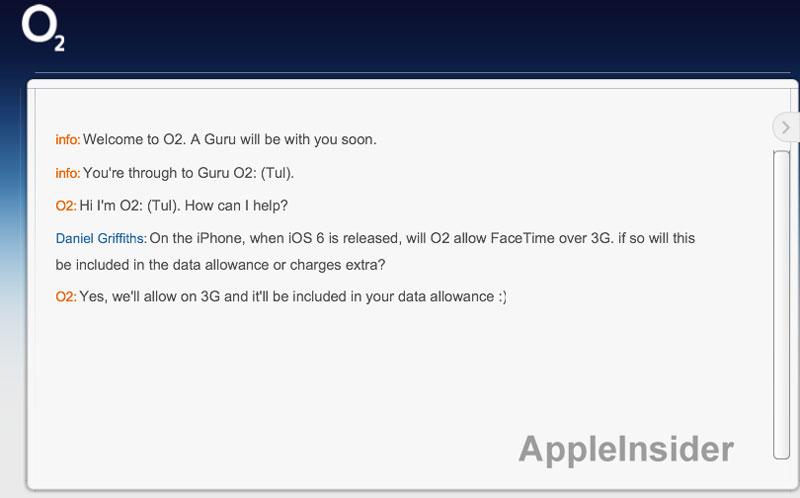iOS 6 message prompts speculation carriers may charge for 3G FaceTime
Last updated
"To enable FaceTime over cellular on this account, contact AT&T at 611," reads the prompt in iOS 6, discovered by iDownloadBlog. The message first appeared with this week's release of iOS 6 beta 3, and only shows up when a user attempts to enable FaceTime over 3G on AT&T's network, not Verizon's.
For its part, AT&T refused to elaborate further on the error message found in the third beta of iOS 6. In a statement, the company said it is "working closely with Apple on the new developer build," and that it will "share more information with our customers as it becomes available."
The error message in iOS 6 is similar to the type of prompt users receive when they attempt to turn on the "Personal Hotspot" tethering feature already found in existing releases of iOS. That's led some to assume that carriers like AT&T are at the very least considering charging users for the ability to make FaceTime video calls over 3G.
FaceTime over 3G is one new feature coming when iOS 6 launches this fall, though the functionality will be restricted to the iPhone 4S and cellular-capable models of the third-generation iPad.
Update: One AppleInsider reader inquired with U.K. carrier O2 about support for FaceTime over 3G. An online representative indicated that the feature will be included in the data allowance for iPhone users (see screenshot below).
When FaceTime was first announced with the launch of the iPhone 4 in 2010, then-Apple Chief Executive Steve Jobs indicated that his company wanted to allow FaceTime calls over 3G, but that Apple needed to "work a little bit with the cellular providers" to bring that capability to users.
Apple already allows some carriers to block or restrict certain functionality on their networks. For example, when iOS 3.0 was released with tethering capabilities, AT&T blocked the paid feature until a year later, with the release of iOS 4.0.
 AppleInsider Staff
AppleInsider Staff















 Amber Neely
Amber Neely
 Thomas Sibilly
Thomas Sibilly

 William Gallagher
William Gallagher
 Malcolm Owen
Malcolm Owen
 Christine McKee
Christine McKee










84 Comments
The FCC really has to step in here and give the carriers a choice: start following principles of network neutrality, or lose their license to the public airwaves. What's next, you have to pay for a data plan but pay extra to access the Web?
Don't forget, this is yet another area where Google (in conspiracy with Verizon) has plotted to harm consumers.
AT&T: "It's an added feature"
Me: "I paid for my bandwidth, stop telling me how to use it."
Purely speculation folks.
My guess is that the carriers want to formerly "warn" users before they use this feature as it will chew up MBs faster than any other App.
Presumably they mean charge extra over and above your data plan? Sadly I'm sure if they can they will, it's just a case of how much.
It seems Rogers in Canada has already confirmed to customers that they will not charge extra for Facetime over 3G. It's very likely that Bell and Telus will follow suit, as they have in the past when Apple challenged the carriers to do the right thing.